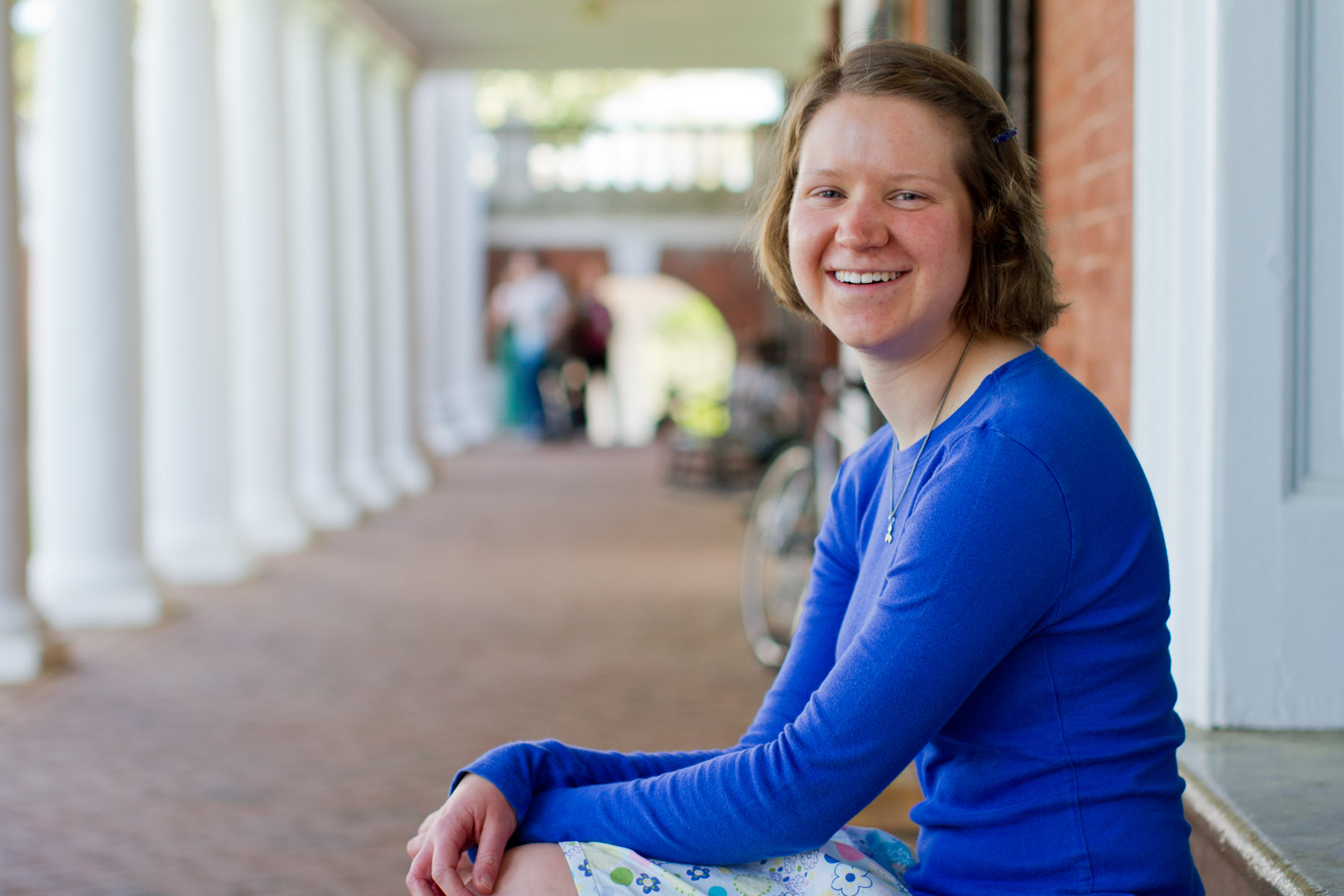April 3, 2012 — Rowan Sprague, a civil and environmental engineering major in the University of Virginia's School of Engineering and Applied Science, has received a 2012 Udall Scholarship.
The scholarship, given by the Morris K. Udall Foundation in honor of the late Arizona congressman, provides up to $5,000 for one year of study. An independent review committee selected Sprague as one of 80 winners nationwide, chosen for their commitment to careers in the environment, health care or tribal public policy; leadership potential; and academic achievement.
Sprague, 20, of Richmond, is a third-year student researching the relationship between engineering and sustainable agriculture.
"In my application I talked a lot about my leadership in starting a Community-Supported Agriculture program for U.Va. students and faculty with the Morven Kitchen Garden," Sprague said. "Through this project, I have connected many students and faculty to sustainably grown food, thereby reducing transportation fossil fuels and chemical fertilizers."
The daughter of Rob and Lee Sprague and a graduate of Trinity Episcopal School, she was an intern and leader with the Morven Kitchen Garden Project, a one-acre educational plot at U.Va.'s Morven Farm estate, used for studying sustainable agriculture techniques and food systems. The produce from the garden goes to the CSA members, so students are growing food directly for people within the University community.
Sprague is a sustainable food intern at the International Residence College, responsible for organizing, advertising and running community-building events aimed at raising awareness for local food and supporting local food systems. She is the academic achievement chair of the U.Va. Chapter of the American Society of Civil Engineers, a steering committee member of the U.Va. Food Collaborative and a volunteer English-language tutor.
A Faculty Senate committee awarded her a 2012 Harrison Undergraduate Research grant to work with honeybees.
"As one of the main pollinators of crops, honeybees are in high demand in agriculture, but their colonies are being weakened by an invasive and parasitic insect, the small hive beetle," she said. "I will research the optimal structural design of a trap to keep hive beetles out of the beehives. The more I learn about honeybees, the more fascinated I am with them and more I want to help combat their decline."
Sprague studied mathematically modeling honeybee behaviors while learning about beekeeping practices at "Bee School," a seminar program taught by Christian Gromoll, a mathematics professor and hobby beekeeper. Gromoll has met with a half-dozen students about every other week since October, discussing math, honeybee behaviors and beekeeping techniques.
"As part of a community-based undergraduate research grant, I am researching season-extension techniques that will enable the garden to grow crops longer into the cold season," Sprague said. "I am working with the Local Food Hub, a non-profit organization that buys and distributes locally produced goods from farmers in the area, and I plan to share my findings with the Local Food Hub's network of farmers."
In the future, Sprague plans to confront environmental issues relating to current agricultural practices and food access while engaging underserved communities in the food system.
"Using my background in engineering, I intend to explore techniques that boost the health of the environment and reduce the intensive use of fossil fuels," she said. "I am considering going to graduate school, but first I would like to gain experience working with a variety of communities on pressing agricultural issues."
Thomas T. Baber, an associate professor of civil and environmental engineering, called Sprague "the most conscientious student in my class this year, and one of the most conscientious students whom I have taught in roughly 30 years."
"Her involvement in the affordable housing and local food movements in Charlottesville and elsewhere sets her apart from many of her peers," he said.
Baber, who taught Sprague in his Strength of Materials and Structural Mechanics courses, cited her Jefferson Public Citizen Grant Project promoting urban composting in Bluefields, Nicaragua, and working at the Morven Kitchen Garden student farm project. "Throughout all of these activities, she has shown a consistent interest in promoting sustainable agriculture, and affordable sustainable housing," he said.
Paxton Marshall, an electrical and computer engineering professor, is advising Sprague on some of her bee research.
"Rowan Sprague is a remarkable young woman who is deeply involved in food sustainability and the environment," he said. "She has amply demonstrated the commitment to natural resource preservation, sustainability and social justice that characterized the work of Morris Udall. Everything Rowan takes on she does well."
Sprague is part of a select group; less than 14 percent of Udall applicants were successful.
"I'm so delighted that Rowan is among them," said Katherine V. Walters, assistant director of U.Va.'s Center for Undergraduate Excellence. "She is a warm and sincere person who is committed to improving environmental issues related to our food system."
The Morris K. Udall Scholarship and Excellence in National Environmental Policy Foundation was authorized by Congress in 1992 to honor Udall's legacy of public service. The foundation is supported by a trust fund in the U.S. Treasury and contributions from the private sector.
Media Contact
Article Information
April 3, 2012
/content/university-virginia-student-rowan-sprague-receive-udall-scholarship

